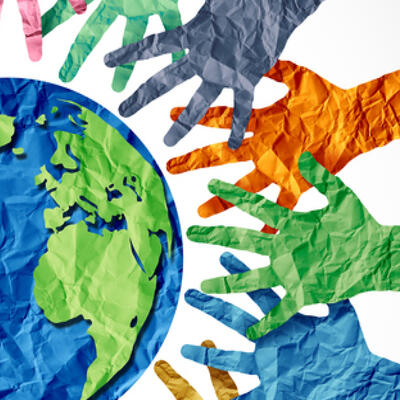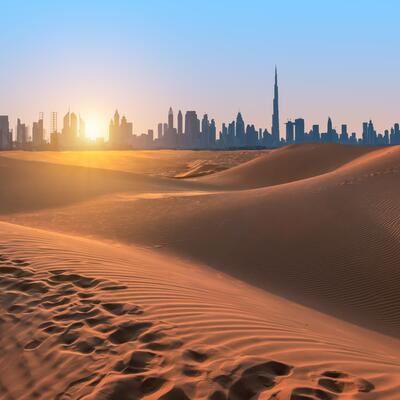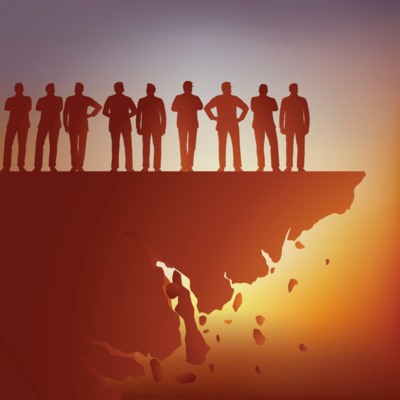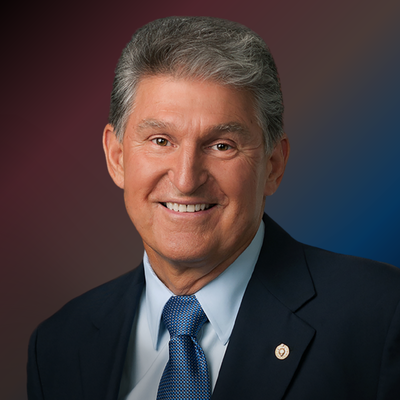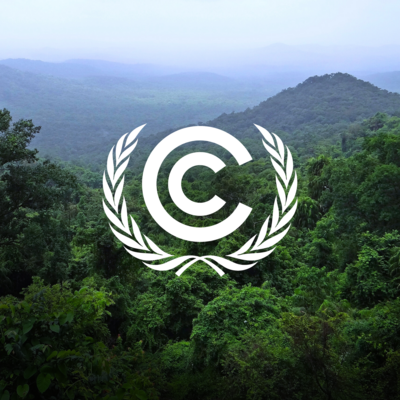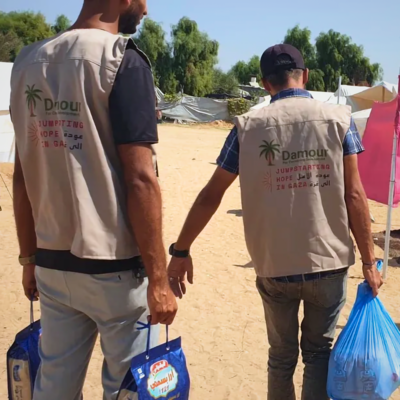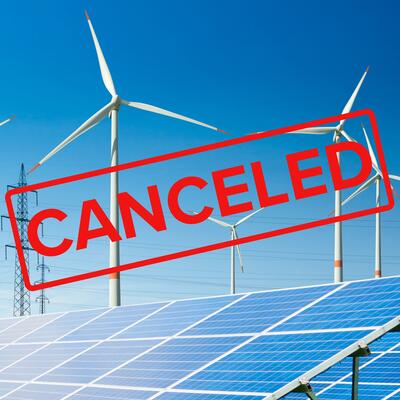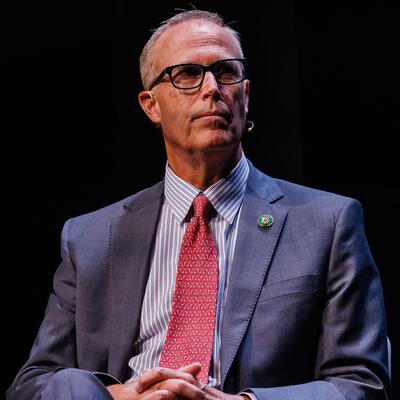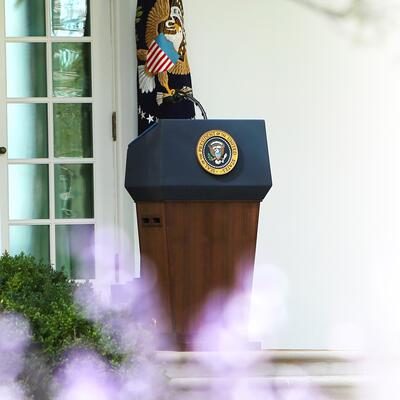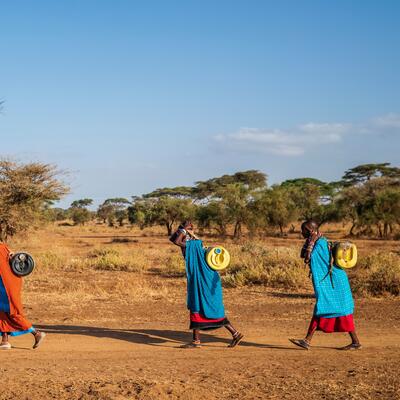
Reporting from COP28: The People at the Heart of It All
Guests
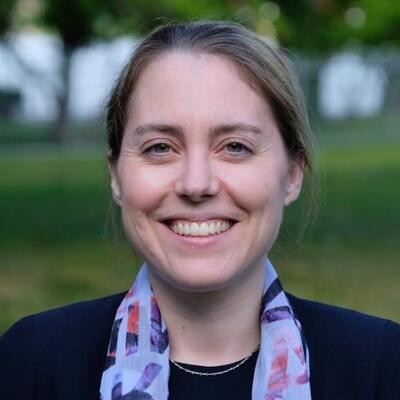
Claire Stockwell
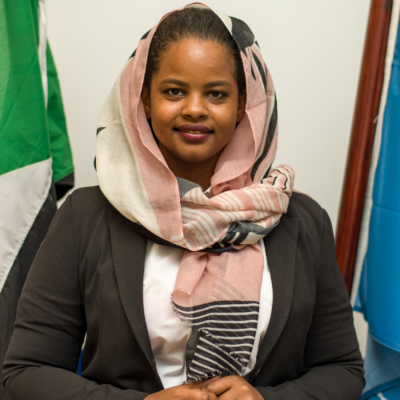
Nisreen Elsaim
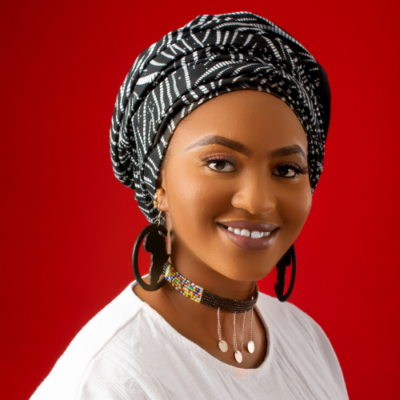
Abigael Kima
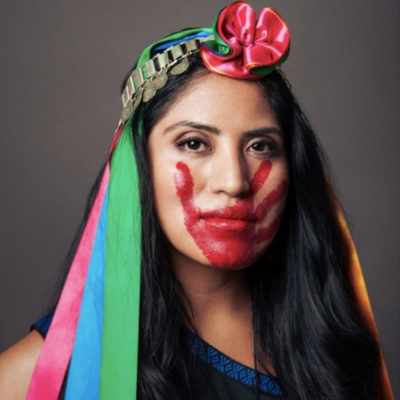
Chautuileo Tranamil
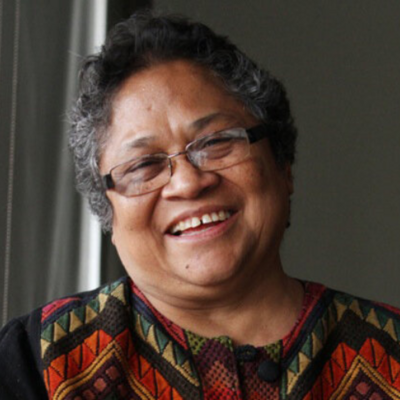
Myrna Cunningham
Summary
We’re a week into the 28th Conference of the Parties, the UN’s annual climate summit, held this year in the city of Dubai. This year is the “global stocktake” where countries are supposed to show how far they’ve come in meeting the carbon reduction targets they set in Paris seven years ago. And the news isn’t good.
“Countries are still failing,” says Claire Stockwell, senior climate policy analyst at Climate Analytics, and lead author on the latest report from Climate Action Tracker, the premier, independent body for comparing how promises stack up against reality.
“The targets and actions the governments put on the table have stalled. It's essentially the same report we put out three years ago in Glasgow. And so we need, at this meeting, governments to commit to a lot more ambitious action and targets, and that's going to start with making sure that in the final decision they agree to phasing out fossil fuels.”
So far more than 100 countries have called for an immediate end to all new oil and gas production and clear end dates for fossil fuel production. And more than 110 countries have pledged to triple renewable energy capacity and double energy efficiency by 2030.
The leaders of the two biggest emitters, the U.S. and China, are notably not attending this year, though both countries have high-level representatives at the summit.
We spent a good portion of our show last week on the controversy around Sultan Al Jaber as COP28 president. And it seems like the fossil fuel industry has a larger presence at this conference than ever before. The CEO of ExxonMobil came to one of these conferences for the first time.
There has been some progress from the industry, though far from enough: ExxonMobil and Saudi Aramco — two of the world's biggest oil companies — are leading a pledge to reach near-zero methane emissions by 2030. They've gotten dozens of other companies to sign on to it. And there's a satellite that will actually measure the leaking, to keep them honest.
Last year at COP27, one of the biggest outcomes was the creation of a loss and damage fund for rich nations to help pay poorer countries for the climate impacts their emissions have caused. As of this writing, country pledges are over $700 million, a bright spot in the early part of the conference.
This week we’re featuring a few of the thousands of people who have traveled to COP28 to share their stories and pressure heads of state to be more aggressive in cutting climate-harming emissions. Those include a woman from Sudan who fled armed conflict with her baby, a Kenyan woman haunted by seeing animal carcasses by the side of the road in her country, and an Indigenous woman who did a crowdfunding campaign to get here.
“The young generation is not the generation that caused climate change. But it's the generation that will have to deal with the [con]sequences of climate change. Yet we are not the ones making the decisions,” says Sudanese Climate Activist Nisreen Elsaim.
These women have traveled thousands of miles to this UN climate summit in Dubai to share their experiences — and have their voices heard.
“Representation of Indigenous people is always a good thing, but it's not enough. I should be included for participation. I should be included to make sure that my demands are being heard. And I should be included to make sure that the next generation are also at the table,” says Chautuileo Tranamil, co-founder of Indigenous Liberation and Aralez.
Episode Highlights
1:00 Update from COP28
6:20 Claire Stockwell on countries’ emissions target update
8:50 US emissions and impact of Inflation Reduction Act
11:30 “If you want to limit warming to 1.5 degrees, you have to phase [fossil fuels] out” – Claire Stockwell
18:40 Al Gore on how we can “flip a switch” on global warming with actual net zero
20:30 Sudanese Climate Activist Nisreen Elsaim
25:00 Dual threats of armed conflict and climate impacts in Sudan
34:00 Abigael Kima on climate impacts in Kenya
40:00 Myrna Cunningham on collective care
44:00 Chautuileo Tranamil on what she hopes to accomplish at COP28
48:20 Asking French President Macron to provide Haiti with reparations
51:30 Supporting Indigenous land stewardship
Resources From This Episode (2)
Full Transcript
Note: Transcripts are generated using a combination of automated software and human transcribers and may contain errors. Please check the actual audio before quoting it.
Greg Dalton: From COP 28 in Dubai, I’m Greg Dalton.
Ariana Brocious: From Tucson, Arizona, I’m Ariana Brocious.
Greg Dalton: And this is Climate One.
We’re a week into the 28th Conference of Parties, the UN’s annual climate summit, held this year in the city of Dubai in the United Arab Emirates. This place on the Persian Gulf feels like a combination of Waikiki, Las Vegas and Hong Kong. Soaring towers, flashy wealth and waterfront resorts.
Ariana Brocious: And all built on fossil fuels.
Greg Dalton: Right, it’s the primary source of wealth here in this OPEC countries
Ariana Brocious: Last week you described the conference as the climate Super Bowl. This is where all the big players come to negotiate. The leaders of the two biggest emitters, the U.S. and China, are notably not attending this year. But it sounds like some progress is being made. I know the final agreement doesn’t come together until the very last days or hours of these summits, but what’s the news so far?
Greg Dalton: There have been a few notable announcements. This year is the “global stocktake” where countries are supposed to show how far they’ve come in meeting the carbon reduction targets they set in Paris 7 years ago. It’s kinda like midterm exams. Pretty much everyone is failing. On the other hand, more than 110 countries have pledged to triple renewable energy capacity and double energy efficiency by 2030. They don’t know quite how they’re going to do that, but they’re putting it out there.In climate-wonk speak that’s called increased ambition, and it’s a good thing.
Ariana Brocious: Yeah, that is a good thing. I also read that over a hundred countries have called for an immediate end to all new oil and gas production and clear end dates for fossil fuel production. That seems like big news.
Greg Dalton: Yeah, it is significant. It’s about half the countries in the world
Ariana Brocious: Last year one of the biggest outcomes was the creation of this loss and damage fund, what have you heard about the actual funding for that?
Greg Dalton: That was one of the early bright spots. As of this recording, country pledges are over $700 million. Barbados Prime Minister Mia Mottley, a climate champion, expressed some optimism about rich nations providing funding to help countries like hers adapt and respond to climate impacts:
Mia Mottley: This has probably been the most progress we’ve seen in the last 12 months on finance, but we’re not where we need to be yet.
Greg Dalton: We are hearing that a lot this week - there’s a long way to go.
Ariana Brocious: Yeah. Well, some of the news on this side of the ocean has focused on comments by the COP President, a man named Sultan Al Jaber He also heads the UAE’s national oil company. This week, a video circulated in which he said that there is “no science” behind the idea that fossil fuels must be phased out in order to keep average global temperatures from rising. That’s pretty shocking coming from the person who's leading the international climate summit. What’s been the reaction there?
Greg Dalton: A lot of outrage. He’s trying to walk it back a little bit. We spent a good portion of our show last week on the controversy around Al Jaber as COP President. And here on the ground it seems like the fossil fuel industry has a larger presence at this conference than ever before. The CEO of Exxon came to one of these conferences for the first time.
Ariana Brocious: Well we know fossil fuel companies have a long history of squashing and misdirecting the impact of their products on the global climate. Though you can see why such insanely profitable companies balk at voluntarily giving up their profits and shutting down their industry. You could argue that oil companies should use some of that wealth to invest more in renewables, but those are less profitable because we don’t pay for the pollution caused by dirty energy. None of us pay the true cost at the pump or meter.
Greg Dalton: Yeah. But there is a bit of progress from this sector: ExxonMobil and Saudi Aramco -- two of the world's biggest oil companies -- are leading a pledge to reach near-zero methane emissions by 2030. They've gotten dozens of other companies to sign on to it. and there's a satellite that will actually measure the leaking, to keep them honest.
Ariana Brocious: That’s good news, because methane is a major contributor to global warming. Okay, so not cutting the emission from burning their ACTUAL oil and gas products, but capturing some of the waste methane that escapes in drilling and refining. That’s progress, but not NEARLY enough.
Greg Dalton: Right. Here’s what UN Secretary General Antonio Guterres had to say at the opening of the conference:
Antonio Guterres: We cannot save a burning planet with a firehose of fossil fuels. We must accelerate a just, equitable transition to renewables. The science is clear: The 1.5-degree limit is only possible if we ultimately stop burning all fossil fuels. Not reduce. Not abate. Phaseout – with a clear timeframe aligned with 1.5 degrees.
Greg Dalton: There’s a lot of talk here about numbers and pledges and politics. Those are important, AND we can’t forget the people at the heart of it all.
Ariana Brocious: In this episode, we’ll hear from people from all over the world:
A woman from Sudan who fled armed conflict with her baby. A Kenyan woman who is haunted by seeing animal carcasses by the side of the road in her country.
Greg Dalton:And an indigenous woman who did a crowdfunding campaign to get here. These women have traveled thousands of miles to this UN climate summit in Dubai to share their experiences - and have their voices heard.
Ariana Brocious: We’ll get to their stories a little later on in the show. First… we’re going to check in on how well countries are doing on meeting the goals they set for themselves in the Paris Accords. You spoke with Claire Stockwell, Senior Climate Policy Analyst with Climate Analytics. She’s also the lead author on the latest report from Climate Action Tracker, the premiere, independent body for comparing how countries’ promises stack up against reality.
Greg Dalton: Welcome. Good to see you again. So, you're kind of the teacher that's grading everybody on their progress. What are the takeaways?
Claire Stockwell: Countries are still failing. I mean, the update that we put out today is showing that the targets and actions the governments put on the table have stalled. It's essentially the same report we put out three years ago in Glasgow. And so we need at this meeting, governments to commit to a lot more ambitious action and targets, and that's going to start with making sure that in the final decision they agree to phasing out fossil fuels.
Greg Dalton: And phasing out fossil fuels, so emissions need to go down. In this world, curves that go down are good. And I have in my mind, some are going down, some are going up. Paint a picture for me of different countries and how their curves are going and the way we want them to, and some are going the wrong way.
Claire Stockwell: Okay, I will maybe start with the good news, and that would be in this update, we extended our window of analysis out to 2035 because that was going to give us a better sense of how emissions would evolve and how warming would evolve over the rest of the century. For China's emissions, we're showing a peaking post 2030, where renewables could really take over and ensure that they are on a structural decline in terms of getting out of coal.
Greg Dalton: But let me just jump in and I heard from one of your colleagues that China's peaking earlier than expected. That's pretty good news, right?
Claire Stockwell: That is pretty good news, but that trajectory needs to come down a lot faster than it currently is. So that's good, but in our numbers, it's still higher than where we had China last year. Peaking is one thing, but then you need to start to decline. And the problem is that they essentially stay flat, more or less, till 2030. And it's only post 2030 that you're starting to see that drop in emissions. And so we need to see much faster action from them. India's emissions continue to rise til 2030. But there…you have to also remember India's at a lower level of development. So from a fairness standpoint, we would hope that India or would expect that India would basically stabilize its emissions at today's level over the course of the decade, and that it's going to really need the support of the international community to bring that down and accelerate its transition to renewable, clean, renewable future.
Greg Dalton: Yeah when I saw that India curve going up I was like, oh that's not good. Totally fair that they are in a different place, and they're modernizing, etc. Doing that on fossil fuels. How about the U.S.?
Claire Stockwell: The U.S. The emissions, we are seeing the impact of the Inflation Reduction Act and bringing that emissions down, but it's just not–
Greg Dalton: Already, that's pretty, yeah.
Claire Stockwell: We had already started to see that last year in our numbers, and this year I think we're just still we have greater confidence in the estimates that we're putting out. We can better estimate the impact of the act, but they're still far off meeting their target at the end of the decade. So The Inflation Reduction Act was a good first step, but they've got a lot more to go in this decade, and then to actually get to net zero.
Greg Dalton: And then one of your colleagues said here at a press conference that the production plans for some of the oil exporting states are really going in the wrong direction, Saudi Arabia, etc, that just seems not compatible with what the world needs.
Claire Stockwell: Well that’s also true of the United States as well in terms of increased production. I mean the IEA has been telling us for years that if we want to keep to 1.5 degrees we can have no new developments in oil and gas. That remains the message. That's why we're calling here. The number one thing that we need to see out of this meeting is an agreement to phase out fossil fuels and fossil fuel production. Because, we will exceed the warming limits of the planet if we continue down this road.
Greg Dalton: It seems like there’s a financial incentive to like, Oh, this stuff's going away, we better dig out as much of ours and turn it into cash as fast as we can.
Claire Stockwell: Renewables are, when you look at all of the costs associated with it. Renewables are cheaper to, in most cases to implement. It's better for the health of your population. You look at the air quality here in Dubai. I heard yesterday was at record high levels. They've got a gas plant right, in town.
Greg Dalton: It’s massive, we go by it every day.
Claire Stockwell: It's uh, you know, it's cheaper and obviously when we think of this year, the amount of impacts that we saw globally, the WTO put out the report a couple of days ago and said on every inhabited continent, you had record breaking heat, you had wildfires, the wildfires in Canada, it was affecting the air quality in a lot of American states and cities. You had record tropical cyclones and so, uh, yeah. Fossil fuels may benefit a very select few, but for the health of the planet and for people generally, uh, renewables is the way we need to go.
Greg Dalton: The way to go and yet a big part of contention here in the language of this conference and pointing toward the ultimate declaration is whether to phase out, phase down, unabated, which basically means kind of capturing emissions, putting in the ground somewhere. How does that factor into your scenarios?
Claire Stockwell: Basically, if you want to limit warming to 1.5 degrees, you've got to phase them out. There can't be any footnotes, there can't be any fancy language, any twisting, adding in backdoors, loopholes, anything like that. It's just a pure and simple phase out of fossil fuels. We know by 2030 you're going to need to cut production and use by about 40 percent to keep the window for 1.5 degree alive. So, anything else besides simple phase out is just a distraction and a false solution.
Greg Dalton: We're here in the UAE, a big exporter of methane gas, liquefied natural gas. The wealth of this country was built on that. When we talked last year, you were concerned about the world overbuilding natural gas capacity because of the war in Ukraine. Europe suddenly gets shut off. A big rush to build export terminals, etc. How is that factoring in? Are you still concerned about that?
Claire Stockwell: We are still concerned. We haven't updated the analysis since last year, but at least Europe is continuing to bring on LNG production and the risk there is just that you build, it's twofold. Either you build technology that you don't use and you have a stranded asset and waste of resources or even worse, because you've got it, you continue to burn and use fossil gas, and then that's delaying the uptake of renewables that we otherwise would have. So we're still very concerned about, yeah, fossil gas is not a it's not a bridge fuel. It's not a solution. It needs to be phased out as fast as coal and and oil and the rest of them.
Greg Dalton: And so we have to develop alternatives. What's happening on the, on the replacement side in terms of wind and solar deployment, because we've been talking cut more on the fossil dirty side. Attacking supply doesn't work if demand is still there and there's not an alternative.
Claire Stockwell: Well, we are seeing some positive numbers. We do think the in our China analysis this time in our most ambitious assessment, we could be seeing the beginnings of a structural decline in China. The acceleration of renewables is fast enough to both meet the rising energy demand needs of China as well as to displace coal from its system. But that's our most ambitious assessment. And its still not fast enough.
So we still need it in all instances in all countries, much faster update to renewables and for developing countries. That's going to mean getting the finance that they need to get there because they can't do it all on their own and developed countries like the U.S. And Canada have been falling short on delivering on the amount of climate finance to really enable a just energy transition for everyone.
Greg Dalton: Right. That's a sad reality as voters and democracies don't want to send money to people in countries they can't find on a map and don't know. We haven't talked about, uh, Russia, which, you know, in your map I see kind of the U S and Australia doing pretty good China, India, Canada. Struggling more and then there's Russia, which is a whole different other highly…. and so I think it's the worst color. Tell us about Russia.
Claire Stockwell: Critically insufficient, yes. Russia's emissions are down compared to last year, but we think that is more the impact on the economy from their illegal invasion of Ukraine than any climate policies. I mean, we haven't seen any evidence within Russia.
Greg Dalton: They're not trying to decarbonize.
Claire Stockwell: They're not trying to decarbonize. They are a significant oil and gas producer. And like the rest of them, we would need to see them phasing out production.
Greg Dalton: Yeah, it's just hard to see any country voluntarily doing that, right? You know, I mean, every political leader is responsible to their people. And if you only care about the people that you work for, you extract the resource that….
Claire Stockwell: But it’s all connected in that, you know, you can't, which I think Americans close to the Canadian border saw this summer. The devastating wildfires that Canada experienced, you felt the health impacts across the border of that. Um, you also have devastating wildfires of your own this year that were massively destructive.
And so what happens somewhere in another part of the world? is going to affect Americans, is going to affect Canadians. So we do, it is really a collective effort that we need, and it is for the benefit of everyone. But that's also to, the other part of your question, why would anyone do it on their own?
That's why we need the agreement here. All the world's governments are here, and they need to collectively agree to phase out fossil fuels. And once you get that signal, That is going to reverberate into markets and investment decisions. Countries are going to have to start preparing targets for the 2035 period. I mean, we need action this decade, but those targets also need to be very definitively on a pathway to net zero.
Greg Dalton: So we just came out from a press conference where this report was released here in Dubai. And the final question was from a journalist who said, do you think that the Conference president is putting forward fake solutions. And everybody kind of smiled and smirked on the stage. It looks at the one person like, how is he going to handle this? You didn't answer it. I want to put you on the spot and answer it. Now, what do you think about the proposals?
Claire Stockwell: Well, I think the COP president has the opportunity to prove everyone wrong. He is the head of the state run oil company, so that would seem to be an apparent conflict of interest to be leading a climate conference, but we will see. The proof will be in the pudding of the COP decision that we have at the end of this meeting that he is chairing. Whether we get that phase out to fossil fuels.
Greg Dalton: Well thank you, Claire.
Claire Stockwell: Thank you.
Ariana Brocious: Climate One is on the ground at COP28. Stay up to date by subscribing to our podcast wherever you listen.
Coming up…Thousands of young people attend the climate summit to pressure heads of state to take action now.
Nisreen Elsaim: The young generation is not the generation that caused climate change. But it's the generation that will have to deal with the [con]sequences. Yet we are not the ones making the decisions. The decisions that will even impact more the future.
Ariana Brocious: That’s up next, when Climate One continues.
This is Climate One. I’m Ariana Brocious.
Greg Dalton: And I’m Greg Dalton at COP28 in Dubai.This metropolis on the Persian Gulf is like Disneyland’s small world - in a desert. It is a fascinating mix of faces and cultures. This city is fast paced, oozing with luxury resorts and Ferraris. Most people don’t seem to know there is a conference here discussing pollution trends that could make this place unlivable in their lifetimes.
Ariana Brocious: Right. And we’re in trouble. The numbers Claire Stockwell shared are pretty sobering: Despite all the promises made since the Paris Agreement, global greenhouse gas emissions are still going up. But all is not lost. Al Gore spoke at the conference earlier this week and he described just how big a change we could see if we can truly zero out fossil fuel pollution.
Al Gore: If we get to true net zero, temperatures will stop going up in the world with a lag time of as little as three to five years. It's like flipping a switch. Hard switch to flip, because we've got to stop adding to the amount of greenhouse gas pollution in the sky. But once we do that, the temperatures will stop going up. So we can choose a bright future. We can choose to give young people hope about the future again. We can start the long, slow healing process. If we phase out fossil fuels. That's the answer to it.
Greg Dalton: Rare to hear Al Gore expressing such optimism.
Ariana Brocious: I know, right! He’s getting his information from a consensus of international scientists. That was a HUGE new finding in the last couple years that quite frankly gives me a lot of hope. They generally now agree that if we stop burning fossil fuels, things will get better.
Greg Dalton: Yeah….that’s a big “if”.
In all of these international negotiations – full of jargon and numbers – it’s easy to lose sight of what’s really at stake. Earlier this week, John Kerry said “ We should not measure progress on the climate crisis just by the degrees averted, but by the lives saved.”
Greg Dalton: By some estimates, 70% of the countries most at risk of climate impacts are also at risk of armed conflict – or at war already. One example is Sudan, where a war between two rival armies has been going on since April. Nisreen Elsaim is a Sudanese Climate Activist and Former Chair of the UN Secretary General’s Youth Advisory Group. And she’s experienced the war first-hand. Nisreen told me the harrowing story of fleeing the conflict with her nine-month-old baby.
Nisreen Elsaim: Our house is a walking distance from the airport, also a walking distance from the military base where it was the first targets. And so I woke up at 9:00 AM scared because my baby's crib like smash into our bed. The bomb was so strong to the moment that the furniture moved. And I woke up and asked my husband what's happening. He said he's been hearing bullets and firing for like half an hour. And now this big bomb and he said it's definitely war. And the first thing that came to us is our baby. So, I took him and run the stairs down because we were in the upper floor. I didn't even take my slippers. So, barefoot, I run downstairs. We were in a war zone. So I had to cover the windows, the doors, so we don't get any bullets coming in. We stayed on the floor, for three weeks we stayed in the floor. We ate on the floor, we slept on the floor, everything we did on the floor, uh, under the beds.Three weeks we spent inside of the firing area because we couldn't get out. I put my head out of the yard and I was heavily shot at. So we just stayed inside.
The first week was okay because we had electricity, water and food supplies. The second week we lost electricity, but it was still fine. We were suffering of course with mosquitoes and the weather because in Sudan it was 49 at that time. And my baby got a heat rash. But we couldn't get out. It was the only way to stay in. But the third week was the hardest because the third week we lost electricity, water, and food. We ran out of supplies because we don't have a farm inside of the house.
Greg Dalton: And you say 49. I mean, I was in Asia recently, I got close to 40, and it was unbearably, this is Celsius, of course. Is there a climate connection to the heat?
Nisreen Elsaim: I'm coming to that. I’m a fighter. So I told my husband I will not wait and die. We are dead anyway. I prefer to die trying than waiting. He said I cannot make the decision. I said I made the decision already for you, dear.
Greg Dalton: The decision’s already made.
Nisreen Elsaim: It's not something new. We're moving.
Greg Dalton: We're moving.
Nisreen Elsaim: I managed to only get a backpack. And it was full of diapers because I can take bullets but not poop, to be honest with you. And with the baby, I mean, that was seven months ago, so he was not even one year yet. Not even one year yet, yes. We moved to his brother's house, which is a bit far from the clashing area. Unfortunately, in two weeks, the clashing expanded and reached the brother's house too. And this is where I said to my husband, I don't think this will end now. It's five weeks, you know, And every, this is something I discovered later, every war or conflict, people think it's two days or a week and it will finish. And I've been speaking to a couple of my Syrian friends and they told me it's almost 12 years now. We thought it's two weeks.
Greg Dalton: Wow.
Nisreen Elsaim: So it is the hope of the people that this will end soon and we will be back home soon. So I only took diapers with me. Nothing else. And then I decided to just leave the country and this is where it happened.
Greg Dalton: So you were able to leave, leave, so you're now….?
Nisreen Elsaim: Everywhere. I'm a nomad. Sudan is 18 states. Six of them are experiencing direct clashes as we speak. So people flee to other states where there is no direct clashes. Soon enough, six other states were under the water because we have flood. So people cannot stay there. And so out of the 18 states, only six are livable right now, as we speak.
Greg Dalton: So some are flooded, some have armed conflict, and people are all going into those area that doesn't have floods or armed
Nisreen Elsaim: Exactly. And guess what? Half of this area is desert. It's the northern states or the southern states and the northern states is all desert. It's part of the Sahel region and the Sahara. The big African Sahara. It's part of it. Where there's no agriculture. There is no food supplies. And everyone keeps saying, there is a food security problem. Yes, there is a food security problem, but not only because of the war. It's because of climate changes. It’s making resources and beating is because the temperature is killing everyone.
Greg Dalton: So you have written and spoken about climate justice, and specifically, intergenerational climate justice. What does that mean to you?
Nisreen Elsaim: The young generation is not the generation that caused climate change.
Greg Dalton: Totally true. My generation, boomers, yeah.
Nisreen Elsaim: It's the generation that will have to deal with the [con]sequences of climate change. Yet we are not the ones making the decisions. The decisions that will even impact more the future. We were so young, I wasn't there when the, like, even you were not there when the industrial revolution happened. But the decisions that that generation made is impacting you and impacting me and it will impact our future. It's the same. Now the decisions that we are making now will impact the next generations and we are not the ones who are taking the decisions.
So, I just give you a small example. In Glasgow, I met Prime Minister Modi. The day before, he promised that India will go carbon neutral by 2070. And people were clapping. I don't understand why, but anyway, so I went to him and asked him, Hi Prime Minister, how are you doing? Fine. Everything's okay. Do you think you would be here in 2070? He said, if they didn't discover something that makes me live forever, I don't think so. Like, are you going to be here at 2050? He said, That is also not likely. Will you be here 10 years from now? He said possible, but very limited possibility. It was like then why do you make decisions that will not impact you with any means? Why do you make this? Why do you make promises that you know you will not be there for? How would you know that people in India will go?
I mean, let's imagine that's a very right thing. And India is genuinely aiming to go carbon neutral by 2070. How would you know? You would not be here. How do you make sure? So why are you not committing things while you are the prime minister, where you have the power to actually change things, where you have the power to secure a better future for the next generations?
Greg Dalton: Yeah, well in 2009 developed countries agreed to mobilize a hundred billion dollars a year to support developing countries and taking climate action Took a long time to get that money. Finally. It looks like that's gonna come together. What do you think about that? That that money wealthy countries taking so long to come up with that hundred billion.
Nisreen Elsaim: Okay. Fact checking, the money is not there. Because people don't have a definition for what is climate finance. Italy, just an example. Put establishing a chocolate factory as a climate finance. I don't understand the relationship. Maybe chocolate factory is provide jobs. That's true. Maybe it's green. But how can it be climate action? How could it be climate finance? This is purely investment.
Greg Dalton: Ah, so rich countries are playing with the numbers and slow to the numbers.
Nisreen Elsaim: Japan, Japan pledged 6 billion in 2009 and until now we are in 2023, they only used 1.6 billion and with this rate, it will take them two decades to actually Spent the six billion. So even the money that is being pledged, doesn't mean that it will be expended. I'll tell you another very funny fact. Extremely fragile countries like the one I'm coming from only gets one dollar per capita client finance. Non fragile developing countries get 120 per person. So, we all know that the most vulnerable are the most fragile, right? So how can we make that money reach to them? UN works only with the governments. So what if we don't have governments?
Greg Dalton: Yeah, there's so much injustice in the way that capital flows to the global south into Africa in particular, and there's concern about corruption, political risk, all sorts of things. The cost of capital is higher in Africa than it is in many other places. Also, a lot of people are looking at Africa now for resources and minerals to fuel electrification, cobalt already is coming out of the Congo, copper. So how do you feel about people looking at Africa now with eyes to access minerals to power a transition, an energy transition, hopefully a just transition.
Nisreen Elsaim: Well, first of all, just transition doesn't represent Africa. Only 30 percent of Africans have access to electricity. So what are they transiting from? I mean, if you ask me, I say, Hell no, I'm not working for just transition. I'm working for just access. You need to have access to transit from
Greg Dalton: Before you, yeah, thank you. Energy poverty is huge in Africa. Yeah.
Nisreen Elsaim: We have the opportunity to make this just access sustainable. Yet, who's going to invest in a country or in a continent where there's no stability? Solar power, hydropower, wind power, all of these resources of renewable energy are extremely expensive to install at the beginning. Of course, they have a long life. They have almost zero maintenance cost. In the long run, they are very great investment. But the capital that you need to put at the beginning is also massive, and no one would put their capital in a country where they can just wake up the next morning and find everything was bombed.
Greg Dalton: Right, right. How do you describe yourself now? Are you stateless? Are you a refugee?
Nisreen Elsaim: I'm not a stateless because my passport is still valid until the end of until October 2024. But I don't know what will happen after that. I'm trying not to be, to be a refugee because I know I can reach resources that refugees cannot. I can work, it will take longer, harder ways and with no safety net or community but for me it's doable, not like people who really don't have any other option but being refugees.
Greg Dalton: Nisreen. Thank you so much for sharing your story with me and you seem to be doing very well considering what you've gone through.
Nisreen Elsaim: I mean, I'm not a big fan of Winston Churchill, but he said, if you're going through hell, keep walking.
Ariana Brocious: We often talk about how climate disruption is already hurting people around the world. The impacts can be so varied, even in a single place: way too much rain this year, way too little the next. While those on the ground experience these changes intensely, they may not always know how their local, lived experience fits into a larger climate science and policy framework. And understanding those connections can help people advocate for changes. Greg talked with Abigael Kima, host and producer of the Hali Hewa podcast. Abigael works to educate and empower the most impacted communities across the African continent.
Abigael Kima: So I come from a community that practices agriculture, all around me there was plenty of food supply, there was trees around us, there was a stream literally across our farm. So I grew up in a place where I knew I don't have to worry about food. I don't have to worry about air that is not clean. But then over the years I have seen just the impacts of climate change. And of course degraded forest because it got to a point that farmers had to encroach the land in the forest to increase productivity of the food because of the constant losses from either too much rain or. Or long periods of no rain. So they end up losing their crops to the extreme weather events. And so for me, witnessing that and seeing how the impacts of the degraded forest directly affect us, especially with the water supply because the stream is now almost dried up.
Greg Dalton: And you, you're from near Nairobi, you said?
Abigael Kima: I am based in Nairobi now, but I come from the highland regions of Kenya, a place called Eaton. It is famous for the runners. That's where all the athletes train. So that's where I come from.
Greg Dalton: And you went to northern Kenya and saw some difficult things. Tell me what you saw there.
Abigael Kima: Yeah. So, Northern Kenya over the last couple of years has been experiencing long periods of drought. And of course, as a direct impact to the climate crisis. So what happened was there was a news piece on the television and the community members had come together, including the leaders to pray. For the rains–
Greg Dalton: Because it hadn't rained, I read, for two years?
Abigael Kima: Yeah. It had not rained for two years at that point, but of course now it has rained and they're actually experiencing floods, which is crazy. So, when I saw the news piece on tv, A member of the community said they think it's a curse from God. And I just realized the information gap that exists with regards to the climate crisis. And so when we went there, imagine driving down a road that is littered with animal carcasses. And I must say that this community is majorly a pastoralist community, so them losing their livestock is quite devastating. In some families, they had to share the food that they eat with their animals because there's literally no vegetation. And another devastating experience was seeing families eating in shifts. So if you ate today, then you have to let someone else in the family eat because food is non-existent.
Greg Dalton: And this is particularly impactful for women and girls.
Abigael Kima: Yes. Yes. So a lot of the men in the households have migrated in search of pasture for their animals and to look for places to trade. So the women are left in the home. The fact that there's no water, they have to walk very long distances to get water. In the western region of Kenya, they have to wake up very early, about midnight to go fetch water, because that is when nobody would probably be outside trying to fetch water, and so in that particular area, those cases of, you know, unsafety, rape, it's literally unsafe for the women and their girls to go fetching water at midnight.
Greg Dalton: And you have written that you've seen things with your eyes that you think most climate negotiators have not.
Abigael Kima:. Yeah, I mean, when we come to these conferences like COP, understandably it's a very important platform that is necessary for this generation grappling with the climate emergency. But then it always feels as if we are only speaking based on statistics and numbers and, you know, arguing about commas and whether we should phrase a statement as a phase out or a phase down.
But then you don't see, you know, people who are at the forefront of the climate crisis sharing their experiences and then hoping that their experiences is what will actually shape the decision making. So, yeah, it feels as if the most important voices are not in the rooms that matter.
Greg Dalton: Well, Abigail Kima, thank you so much for sharing your journey and your story with me.
Abigael Kima: Thank you so much.
Ariana Brocious: Find a link to Abigael’s climate podcast, called Hali Hewa, in the show notes on our website.
You're listening to a special Climate One episode from the annual international climate summit. Coming up, Indigenous leaders are among the stakeholders asking for real commitments. Some say they're welcomed for the photo opp, but struggle to be heard.
Chautuileo Tranamil: Representation of indigenous people is always a good thing, but it's not enough. I should be included to make sure that my demands are being heard. And I should be included to make sure that the next generation are also at the tables.
Ariana Brocious: That’s up next, when Climate One continues.
This is Climate One. I’m Ariana Brocious. Indigenous communities are often underrepresented in climate negotiations even as they face growing climate impacts.
Greg Dalton: Here at COP28, many representatives of Indigenous communities struggle to get their voices heard and their needs met. Dr. Myrna Cunningham is a Miskitu from Nicaragua. She heads the Indigenous-led “Pawanka Fund.” That’s a foundation that mentors and grants funds to indigenous people around the world. Dr. Cunningham says people need to develop trust in Indigenous-led funds like hers. When I asked her to tell me a story of an individual who was helped by her fund, I admit I was a little chagrined when corrected me, emphasizing that Indigenous people don’t focus on individual as much as community.
Myrna Cunningham: I’ll give you an example. Our communities were hit by a hurricane, two hurricanes at the end of 2020 and we got resources and to support roofs for the community. And when we went, when we went into the community that was completely destroyed, they said, okay, if you have 30 pieces of tin to support the roof, we're going to give one to each family. And two for the church, but we are not going to support only one family. We have to support all of the members of the community. So that's the idea of collectivity in community. We all get, and we all share, or no one gets. So that concept of community is very important in the life of indigenous peoples.
Greg Dalton: And you say that that's a lesson for other cultures to learn? That the way through the climate crisis is together?
Myrna Cunningham: You cannot solve difficult problems by yourself. One person in a community cannot solve a problem that is shared by the rest of the members of the community. And I think that is something that indigenous peoples have tried to share with the rest of the world. We come, for example, to these meetings with the notion that climate change affects all. Nations are people, and if we unite, we will be able to solve the problem, but if we expect only the head of states to decide and do things, nothing will happen because they will not be able to have good, um, response from the community if the community do not feel that they are part of the solution.
Everybody needs to feel that they are part of the solution. So the collectivization. Collectivity is not only to be benefited by a specific measure. Collectivity means we discuss together, we agree together, we implement together, we assess together, we all share the good and the bad things that can come out from any decision that we make.
Greg Dalton: Chautuileo Tranamil, has also worked on a global scale with Indigenous peoples and local communities. She’s the co-founder of Indigenous Liberation and Aralez, a collective for decolonization. She’s a Mapuche-Pewenche born in Chile and now based in Amsterdam. How she got there is quite a story that we’ll hear in a moment. And how she got to this climate conference in Dubai is also quite a tale…
Chautuileo Tranamil: For me, it was always an impossible mission. The lack of money, the lack of resources. So for me, it was all, yeah, that is happening, but it's not for me because I don't have the money. Two weeks ago, I had this two days of ceremony and I was really talking to ancestors and I was really thinking. You should help me. If I am able to protect Mother Earth in a better way, then you should help me because I can't do it myself. So I asked people. Is there any badge for me left? Any, any? There was one left. I said, okay, hold on. I'm going to get my flight ticket. I'm going to get my accommodation. I have now, been backed by my ancestors, so I will do it. And I started this crowdfund, and within one day, I had, like, at least enough money for the flight tickets. And I was thinking, well, indigenous are always, like, radical. Even I get maybe a tent. Even I need to sleep somewhere, I don't know where, that is for later. The ticket is now mine and I will go.
Greg Dalton: So you raised nearly $2,000 euro in a couple of weeks, very short time, you're here among all these people from all over the world working on climate as you do, what do you hope to accomplish?
Chautuileo Tranamil: First of all I was hoping to be healed. I think that for me, my work sometimes it's very stressful.
Greg Dalton: Yeah.
Chautuileo Tranamil: Educating or correcting or making sure that people understand. So it's, for me also, I need to have a place where I can rest. So, and I know that there are many people here, indigenous who have the same mission. So let us rest for a while and make sure that once we are out of the COP, we are empowered again. We are healed again. We make sure that we are equipped with new knowledge, indigenous, like new insights. And this was for me personally. I really needed to have that medicine. The second objective for me is representation of indigenous people is always a good thing, but it's not enough. It's not enough to see me walking near the people. It's not enough to have me on the picture. I should be included, for participation. I should be included to make sure that my demands are being heard. And I should be included to make sure that the next generation are also at the tables.
So for me, it's like opening doors for the indigenous people who don't speak English like I do, who might have more obstacles to be here and I am here to listen to them and make sure that their demands are being echoed, here in the now in this place.
Greg Dalton: I've never, this is my sixth conference of parties, climate conference, and for over 17 years, I've never heard anyone say before they come here to rest. Most people I talk to think these things are very stressful because they're 24/7, a lot is at stake. And so the idea that you're here to heal and regenerate is interesting. When did you first wake up to climate, your climate awakening? When did you become a climate activist?
Chautuileo Tranamil: Oh, I think it was. I started before I was born. I think I happen to have a personal story and that means that the concept for me of climate justice is very much aligned with taking care of Mother Earth, taking care of a mother. And I was stolen from my mother by birth. I was born in Chile and, 10 minutes after I was born, I was taken, taken by nuns to be, I don't know what they wanted to do with me, but for sure it was like, they wanted to sell me.
Greg Dalton: Nuns took you from a hospital in Chile where you were born and, and didn't send you to a residential school that we've been hearing about. They, wow.
Chautuileo Tranamil: And of course, it's not the only story. There are so many stories, likewise stories like me.
Greg Dalton: What happened to you? Where did you go?
Chautuileo Tranamil: Well, that is the question. I don't know where I was for the first months of my life. I do know that there were Dutch people who wanted to adopt me. And then I became Dutch. So I do have Chilean nationality and I have the family name of my mother. So in this way, I could trace her down. When I was 14, I was able to trace her down. So that was for me, the way back to reclaim who I am and as we are Indigenous, it's of course then you are a representation of what nature is. So becoming a climate justice activist is not enough for me. I am just here becoming me as the Indigenous daughter who was taken and now reclaiming her identity.
Greg Dalton: So how do you feel here? We are here among people from all over the world. Many different cultures, languages. many Indigenous people and some have come up to me and asking, using Google Translate where directions many can't speak English and yet you have this privilege of this English education in this colonial country. So how do you think about that in your presence here?
Chautuileo Tranamil: Well, this morning I saw a crowd and I was thinking, what is happening? And I saw that President Macron from France was standing there. And I was thinking, well, at least I have read the book of Kuhn Bogart and it was about the slavery path of France in relation to Haiti. And I was thinking, well at least I have a political scientist background. I know about decolonization, but I know also the notion about reparations. So I see now the person responsible for potential reparations for the future. I'm going to approach him. I said, hi. And the President Macron mentioned, you look amazing. I said, please make sure that you do reparations for Haiti.
Greg Dalton: How did he respond?
Chautuileo Tranamil: He looked at me, like you're doing now. And I don't know, I can sometimes read people, but it was not the place for him to comment on that, I know. But he looked at me. And for me, that is the best thing I can do, to make him think. Let him think about it, and I know that he understood it because it was a moment.
Greg Dalton: So this is just, I want to say, this is amazing. Two weeks ago, you didn't think you were going to be here, and you went up to the president of France and said, you should have reparations in Haiti.
Chautuileo Tranamil: Kind of correcting the president of France.
Chautuileo Tranamil: It was so funny. I was really thinking, okay, this is now maybe a place for me to do so. And if I can be an independent person, entity, call me a human, and I can do requests from communities to make sure that I understand their pain, I understand their suffering, I understand their needs, that maybe I can be here and make sure that I know where to go.
Greg Dalton: A lot of Indigenous people are feeling climate impacts. Everybody is. What climate impacts have you seen in your original communities?
Chautuileo Tranamil: Last year I was in Chile and I was there in the summer. It means that it's winter in Chile and I was in a snowstorm. The snow came around my chin and it was, I was unable even to go to the restroom because the restroom is outside. I need to dig to make sure that the snow have been removed to make a path for the restroom.
And for me I asked, is this normal? And they said, no, but it's now getting normal. Extreme snowstorms. And my uncle was asking me, do you know any Inuit? Do you know people, indigenous who have maybe traditional practices who can help us out? And I was thinking, well, I should find an Inuit then to make sure that we are sharing knowledge, like how to tackle this kind of challenge.
Greg Dalton: Yeah, right. They know how to handle snow. Indigenous people manage much of the forest land around the world. What do you see as the most effective ways to support indigenous people who are land stewards for centuries?
Chautuileo Tranamil: If we really want to create an impact not only nature based solutions, but also indigenous lands I think we should really be led by Indigenous peoples. There are so many insights, science has proven it. Indigenous stewardship have an impact. It is really essential to not only echo it, but to also replicate it. 80 percent of world's biodiversity is being protected by Indigenous peoples. So all the traditional ancestral knowledge is so essential for us for the future. for example, the Indigenous people from Australia. We in Europe, we have summers also like a lot of fires. We don't know how to defend ourselves like in Italy, like in Spain. If you ask the Indigenous peoples from Australia, the aboriginals, the Yunga, for example, they have systems in fire management. They have ancestral knowledge, and in their own language, their own land, it was forbidden to do so. So it was for many years, forbidden to practice this way of living. And then in Australia, there was a lot of fires. Later on they approved the indigenous to do so, and there were no fires anymore. So, what I'm seeing now is that in Australia, there has been a referendum about the acknowledgement of indigenous peoples in their constitution. They all said no.
Chile, where I am coming from, we are not in a constitution. So we can talk about the climate solutions. We can celebrate indigenous peoples. We can put them on the stage. But there is still no legal constitution. The rights are still being breached. So I am here also to make sure that people understand that it's reciprocity. So at least acknowledge us in the constitution.
Greg Dalton: Don't be just window dressing or ornaments that we are sort of shown to make people feel okay about their white guilt. Wow. That's powerful.
As wrap up, I'm sitting here speaking to you. Tell me what's on your face, it's red and it looks like a human hand covering your mouth.
Chautuileo Tranamil: Yeah. It's, we are silenced, the impunity is intense. There is no investigation being done. There is like the lack of political willingness, the lack of, investigation by the police. It's up to us to make sure that in places like this, I should wear this with pride because not only as I am a survivor, but also there are so many women now missing. We should talk about not only the ecocide or the climate crisis, but also femicides.
Greg Dalton: So you're wearing this symbol of a red hand over your mouth as a symbol to raise awareness of women who are stolen and repressed, etc. And you say it's a symbol of pride and to make people think and visually portray what people like me don't see.
Chautuileo Tranamil: Yeah, because if I am thinking about all those women and girls who could have been something, I'm thinking that for me, they are in my heart. Maybe they are dead. We don't know. but their soul was amazing. They were amazing girls. So I wear them with pride.
Greg Dalton: Women, we know, are often on the front lines of climate impacts. Carrying water, caring for vulnerable children, etc. What's at stake for indigenous women as we get more climate change?
Chautuileo Tranamil: to the concept of rematriation, and that is the return to motherhood. It's essential to view the world as a mother. And we are the babies. So we need to make sure that we, as babies, are being taken care of, for sure. But also, once we grow up, We need to take care of our mother. So the whole sense of stewardship comes from the sense of motherhood. And I see that also the symbiosis between turtles and indigenous women in, for example, the Amazon, turtle is going to lay the eggs and go to the sea. The eggs are coming out and the little ones, they need to find a way back to the sea, to the oceans. And the indigenous women are guiding this process for many years, thousands of years. So there is no mother for the little turtle, but the mother is. for that moment, the indigenous woman. So in all that we can do, at least make sure that we are here. And we are of course, activists. We are maybe radical. We are resilient, but we are also caretakers.
Greg Dalton: Thank you so much.
Chautuileo Tranamil: Thank you. Thank you for having me.
Ariana Brocious: Climate One’s empowering conversations connect all aspects of the climate emergency.
To hear more, subscribe wherever you get your pods. Talking about climate can be hard-- AND it’s critical to address the transitions we need to make in all parts of society. Please help us get people talking more about climate by giving us a rating or review. You can do it right now on your device. You can also help by sending a link to this episode to a friend. On our new website you can create and share playlists focused on topics including food, energy, EVs, activism. By sharing you can help people have their own deeper climate conversations.
Greg Dalton is host and executive producer. Brad Marshland is our senior producer; Our managing director is Jenny Park. Ariana Brocious is co-host, editor and producer. Austin Colón is producer and editor. Megan Biscieglia is our production manager. Wency Shaida is our development manager, Ben Testani is our communications manager. Our theme music was composed by George Young and arranged by Matt Willcox. Gloria Duffy and Philip Yun are co-CEOs of The Commonwealth Club World Affairs, the nonprofit and nonpartisan forum where our program originates. I’m Ariana Brocious, thanks for listening.
